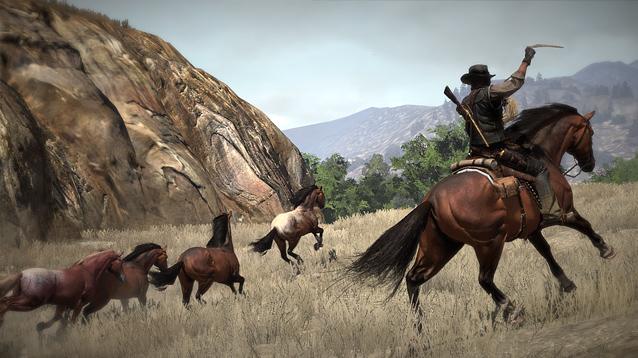When you were in first or second grade, there was probably one kid in your class who just wasn't right.
To teachers and adults, this kid's situation was sad and tragic. Maybe he had a horrific home-life. Maybe he'd been the victim of abuse. Maybe cruel and precarious fate had cursed him with some sort of debilitating medical condition. In any case, things up to this point had been unpleasant for him, and his future wasn't looking any better.
Your teacher probably went to her pastor to talk about this kid. What kind of God would inflict this kind of suffering on an innocent child? How could she bring her own children into the world, knowing this is what could happen? Sometimes, in class, she would look at him, sitting in the back with his finger two knuckles deep in his nose, and she'd cry a little.
But you didn't notice, because you were seven. Your knowledge of the world and its cruelty was limited and your capacity for empathy was undeveloped. To you, that kid was just the spaz; the freak; the smelly kid; the retard.
In gym-class dodgeball, he was everyone's favorite target. You aimed for his head, and you threw the ball as hard as you could. You still remember the sound it made when it bounced off his face. You'd take away his sack lunch and spread its contents out for inspection and ridicule. His family can't afford real Oreos! Probably because he doesn't have a dad! Is that olive-loaf? Ew! And with the little diner packets of crackers to eat it on! Can't you afford bread, Spaz?
Afterwards, you'd stomp on it, so he had nothing to eat. When it rained, you pushed him down in the mud.
Years later, you have difficulty admitting you did these things. Maybe you've talked about this with your therapist. Maybe you have lingering doubts about whether you are a good person. When you attended your class reunion, you were very relieved this kid wasn't there. You didn't ask about him, for fear that what you'd learn would break your heart.
The thing you couldn't bring yourself to say in therapy, the truth you can't acknowledge, even to yourself, is that crushing that little fucker's shitty-ass Hydrox cookies was the FUNNIEST THING EVER. You have never enjoyed anything that much. Not even sex.
II remember reading stories about children when I was a kid. The way they interacted with each other never seemed realistic. I was only able to suspend disbelief because I thought I was supposed to; I wasn't yet aware that some books were good and others were bad. But I think the most accurate depiction of kids acting like kids I've ever read was "Lord of the Flies." Something to think about.




